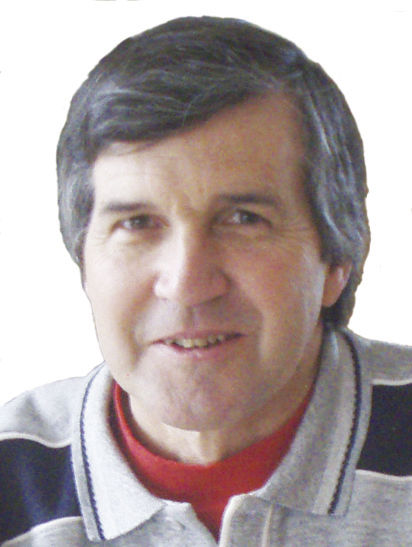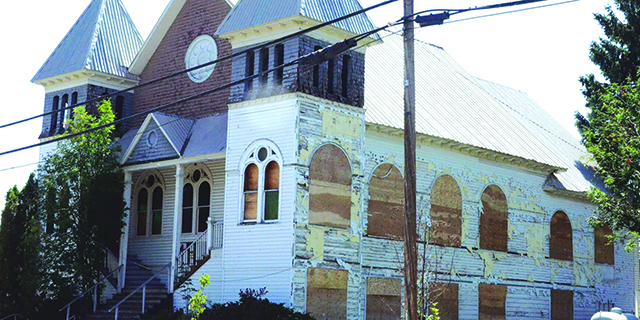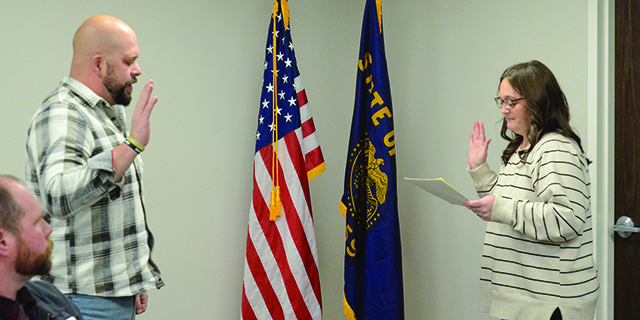POLITICAL PHILOSOPHY: Assassination’s impact very long-reaching
Published 4:00 pm Monday, November 25, 2013

- photo John McColgan, author of the recently published "Where ever The Truth Might Lie," will hold a book signing Sunday, Feb. 19, from 1 to 4 p.m. at Arrowhead Chocolate shop in Joseph.
Typically I write my monthly column for the Chieftain about a week and a half ahead of its publication, thereby allowing myself a few extra days to ruminate over it before I submit my copy to Editor Rob Ruth. This time I deliberately did only a rough outline before last weeks edition came out, because I wondered whether Rich Wandschneider or one of the other columnists might select the same subject that I had chosen. So I smiled and shook my head when I read Rob Ruths column regarding his early memories of President Kennedy, which paralleled my own outline in many respects.
Rob and I are about the same age, and any American our age or older probably has some personal recollections of Kennedys presidency, along with still vivid memories of his assassination. In my case, I was born into a predominantly Irish Catholic family in Boston, and whether in matters relating to nationality, sports, politics, or religion, I was nurtured with very staunch loyalties. My earliest memories of JFK come from a little song that my older brother Bobby used to sing during the 1960 campaign: Whistle while you work, Nixon is a jerk, Eisenhower has the power to beat him up. And High Hopes, Kennedys upbeat campaign theme song, was another ditty that I also sang cheerfully in kindergarten.
Trending
My dad had a picture of President Kennedy right beside his armchair in our living room, and I recall seeing a letter that Kennedy (or more likely one of his aides) wrote in reply to one from my father. My dad also had a numbered copy of Kennedys inauguration program, which was passed on to me by my siblings recently after my mom died.
I have a few memories of moments in JFKs presidency, including his inauguration speech, but its hard to know whether I now recall Kennedys voice saying, Ask not what your country can do for you, Ask what you can do for your country from those initial impressions or from seeing old news clips in later years. But watching John Glenn orbiting the earth is definitely a real-time recollection, and seeing Martin Luther King deliver his I have a Dream speech is another still fresh image from the Kennedy era. How appropriate it seems now for that latter memory in particular to be preserved in black and white.
Yet none of those memories can compare in impact with the impression that Kennedys assassination left on this then 8-year-old boy. I was in the third grade at St. Theresa School in West Roxbury when the grim news came from Dallas, and I can still remember our usually stoic nuns hugging each other and crying as they shepherded us into an early exodus from school. When I got home, the shades were drawn in the middle of the day. My dad, who hardly ever missed a day of work at the Edison Company, happened to be sick that day. He and my mom were sitting in the living room with the television on. None of that was normal. Most astonishingly to me, my mom and dad both were crying. For me to see my mom cry was not unusual, because she was always a soft touch. But to this day, thats the only time that I can clearly recall having seen my dad cry. I hadnt known that was possible at the time.
Over the next four or five days, millions of Americans besides our family were thrown from dreams of Camelot into a national nightmare. We saw images of President Kennedy gunned down, of his wife Jackie scrambling from the limousine, of Oswald arrested and later shot by Jack Ruby, of Bobby Kennedy comforting his brothers grieving widow, of little John John saluting his fathers casket. For most of us, these memories are more indelible than those of Kennedys presidency itself.
Fifty years later, our nation still has not fully recovered from that fateful day, or from the impact of other assassinations that followed. There is simply no way of knowing how America or the rest of the world and our history was impacted by assassins and the leaders that were lost because of them. But it is easy to surmise that social changes, race relations, presidential elections, foreign policy and international affairs all would have unfolded differently without these landmark events.
It is no exaggeration to say that over the course of one weekend 50 years ago, America went from a nation dancing the twist and playing with hula hoops to one of greater suspicion, distrust, indignation, anger, and protest. Our loss that weekend was more than a fallen president. It was also the loss of our national innocence.
Trending
John McColgan writes from his home in Joseph.









